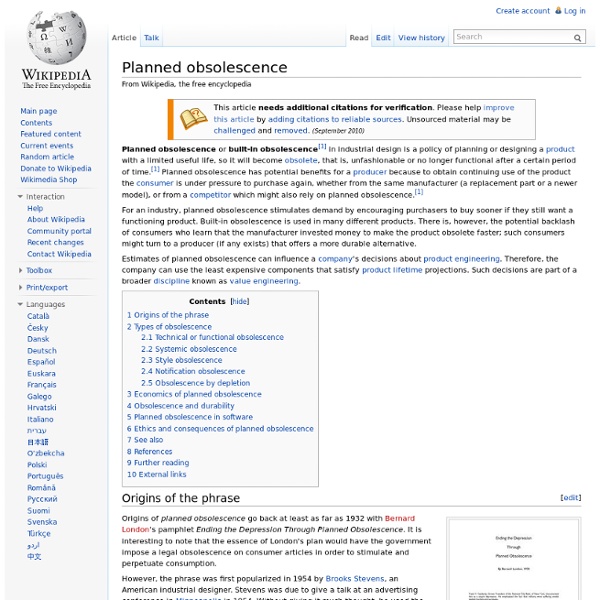Planned Obsolescence | falling indelibly into the past
obsolescence programmée
How Goldman Sachs And Its Henchmen Are Starving The World
For today I had intended to write another installment on what happens when the Republicans get their way and the so called “free market” is left to regulate itself. Then, a picture on Facebook caught my attention (the picture to the left) and it reminded me of a much more immediate problem. I was planning to discuss the South Seas Company founded in England in 1711. I'll come back to it in a later article. Lest you be deluded into thinking that there are some behaviors so despicable that even bankers won’t engage in them to make a buck lets take a look at food speculation. Before we do that, however, we need to understand just a little about commodities markets. Commodities markets first appeared in the United States in the 19th century and are rooted in trading agricultural products, wheat, soy, corn and some livestock. A forward contract is an agreement between two parties to exchange at some fixed future date a given quantity of a commodity for a price defined today. References:
Corporatism Is Not Capitalism: 7 Things About The Monolithic Predator Corporations That Dominate Our Economy That Every American Should Know
Right now, there is a lot of talk about the evils of “capitalism”. But it is not really accurate to say that we live in a capitalist system. Rather, what we have in the United States today, and what most of the world is living under, is much more accurately described as “corporatism”. Under corporatism, most wealth and power is concentrated in the hands of giant corporations and big government is used as a tool by these corporations to consolidate wealth and power even further. In a corporatist system, the wealth and power of individuals and small businesses is dwarfed by the overwhelming dominance of the corporations. Eventually, the corporations end up owning almost everything and they end up dominating nearly every aspect of society. The following is the definition of “corporatism” from the Merriam-Webster dictionary…. Corporatism is actually not too different from socialism or communism. But our founding fathers never intended for us to have a collectivist system. Well, keep reading.
Zombie Capitalism
Book Review by Jonny Jones, July 2009 Chris Harman, Bookmarks Publications; £16.99 Lenin once wrote of politics, "There are decades when nothing happens; and there are weeks when decades happen." From Margaret Thatcher's insistence that "there is no alternative" to neoliberal capitalism to George Bush Senior's talk of a "new world order" our rulers had insisted that the untrammelled free market represented the best, indeed the only, way of creating a prosperous society for a generation. These illusions were decisively shattered in 2008. In the wake of these massive upheavals, Chris Harman's new book Zombie Capitalism is both timely and hugely valuable. The first three chapters set out Karl Marx's basic concepts. These chapters forcefully restate both the dynamism of the capitalist mode of production and its inequality. In its blind rush to accumulate in order to compete with other capitals, capitalism sows the seeds of overproduction, unemployment and economic crisis. Comments? Contents
52 Shades of Greed | An Illustrated Education Game
The Network of Global Corporate Control
Abstract The structure of the control network of transnational corporations affects global market competition and financial stability. So far, only small national samples were studied and there was no appropriate methodology to assess control globally. Citation: Vitali S, Glattfelder JB, Battiston S (2011) The Network of Global Corporate Control. Editor: Alejandro Raul Hernandez Montoya, Universidad Veracruzana, Mexico Received: March 29, 2011; Accepted: September 15, 2011; Published: October 26, 2011 Copyright: © 2011 Vitali et al. Funding: The authors acknowledge financial support from the ETH Competence Center “Coping with Crises in Complex Socio-Economic Systems” (CCSS) through ETH Research Grant CH1-01-08-2; the European Commission FP7 FET Open Project “FOC” No. 255987. Competing interests: The authors have declared that no competing interests exist. Introduction Methods Ownership refers to a person or a firm owning another firm entirely or partially. holds in firm . owns , then firm .
L'obsolescence programmée, bientôt interdite ?
Le groupe écologiste du Sénat a déposé, le 18 mars, une proposition de loi pour lutter contre l'obsolescence programmée et faciliter la réparabilité des produits. Elle pourrait être intégrée à la loi de consommation, prévue avant l'été. Alors que les associations de défense de l'environnement et des consommateurs dénoncent l'obsolescence programmée depuis des années, une proposition de loi, déposée le 18 mars par le groupe écologiste du Sénat, vise à lutter contre ce phénomène et à organiser une économie de la réparation. Les sénateurs souhaitent également lancer une réflexion sur l'économie de fonctionnalité, en demandant au gouvernement un rapport sur ce sujet. Le texte vise d'abord à donner une définition à l'obsolescence programmée, la plus large possible pour englober les différents types d'obsolescence (matérielle, logicielle…) des produits. Durées légales de garantie et de conformité Explications de Jean-Vincent Placé, auteur de la proposition de loiMarie Jo Sader



